BenQ PD2700U 4K HDR Monitor Review: Pro-Level Accuracy, Attractive Price
Why you can trust Tom's Hardware
Grayscale, Gamma and Color
The PD2700U ships in the sRGB picture mode, which is factory-certified for accuracy. Our sample met the values on the enclosed data sheet. If you want sRGB, this monitor is right on the money.
Grayscale & Gamma Tracking
We describe our grayscale and gamma tests in detail here.
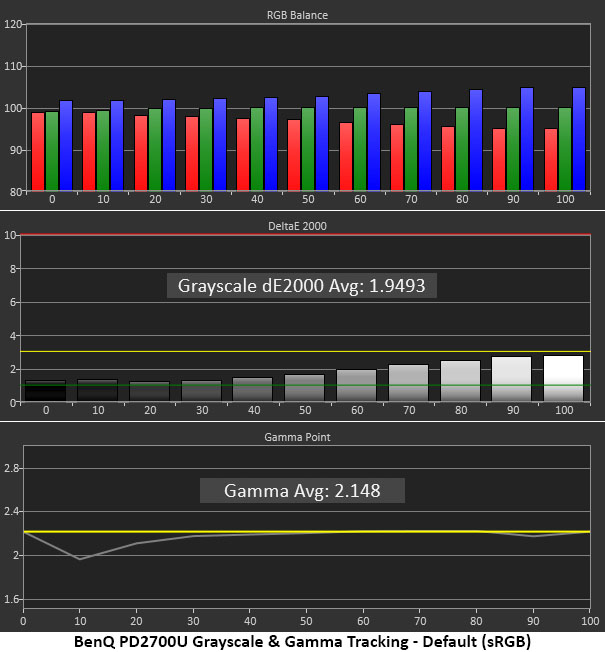
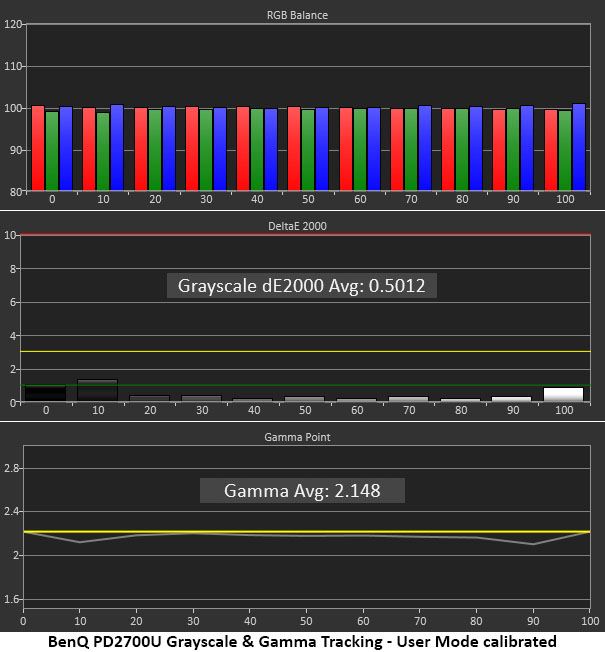
Default grayscale tracking is a bit cool, but the errors are all less than 3dE, the level generally accepted as the visible threshold. Based on this, we don’t see need to calibrate the PD2700U. But we did anyway and found an unexpected benefit. Check out the color results below to see what that is.
Calibration took grayscale to an extremely low error level of just 0.5dE. Only the 10 percent step measures above 1dE, which is extremely impressive. Gamma improved as well, with the dip at 10 percent now nearly erased. Luminance rides just under the 2.2 line, but that cannot be seen by the naked eye.
Comparisons
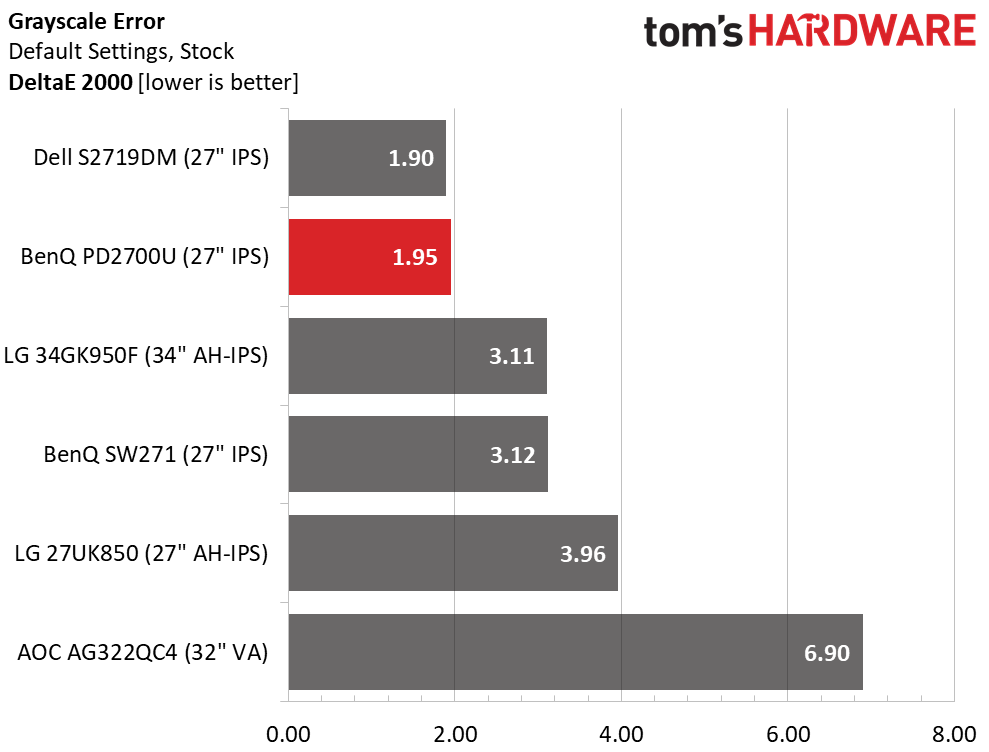
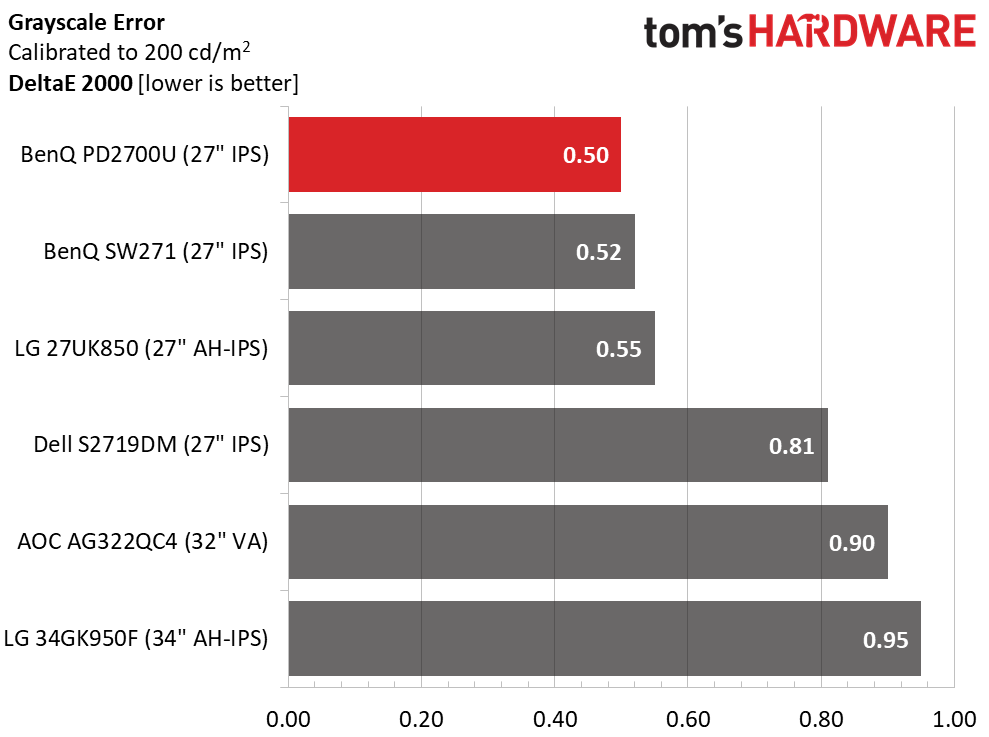
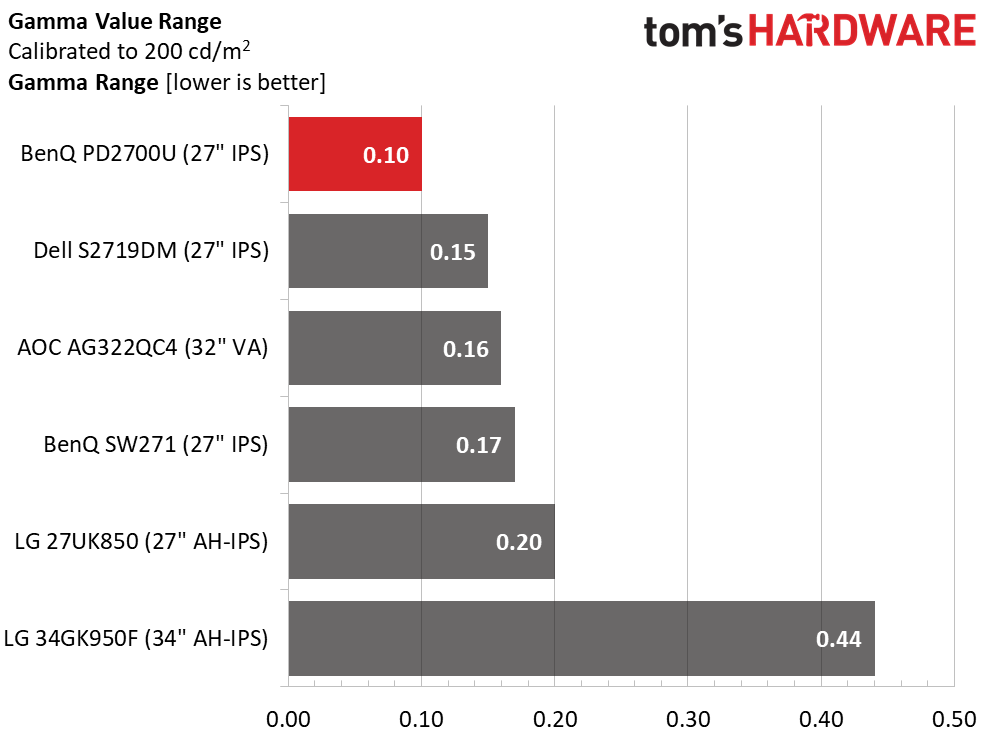
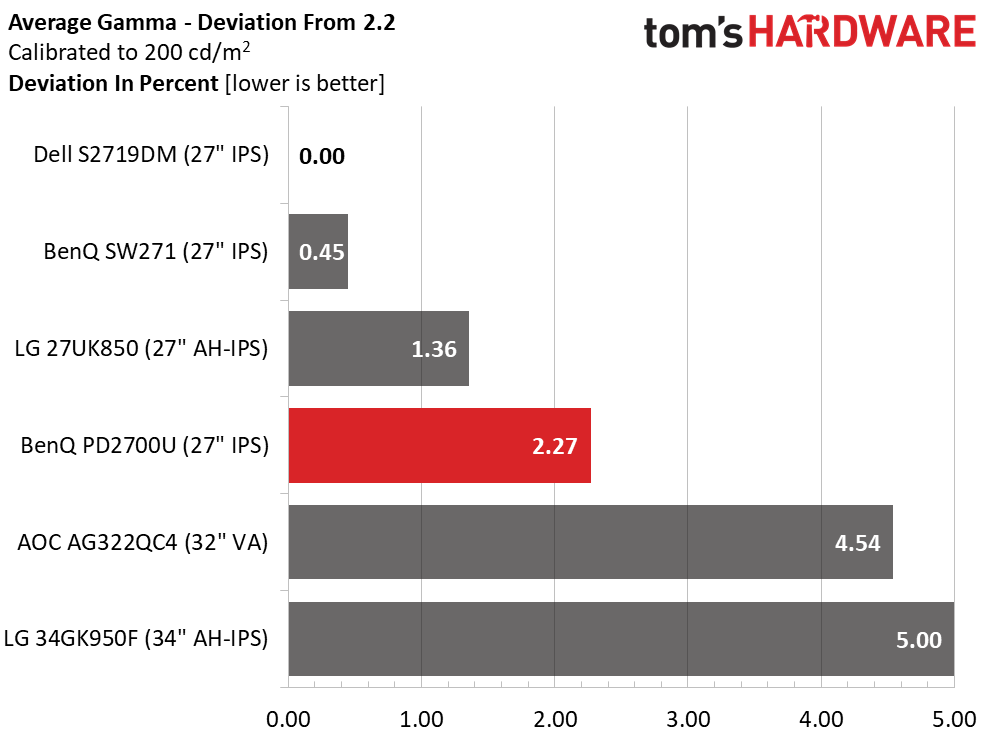
Before calibration, the PD2700U placed second in grayscale error among the comparison monitors. After adjustment, it moved to the top of the pack with a superb 0.5dE score. It easily competes with professional monitors costing much more.
Gamma tracking after calibration to 200 nits was also extremely tight with a mere 0.1 range of values and a 2.27 percent deviation from 2.2. This bodes extremely well for color gamut accuracy, which we’ll cover now.
Color Gamut Accuracy
For details on our color gamut testing and volume calculations, click here.
Get Tom's Hardware's best news and in-depth reviews, straight to your inbox.
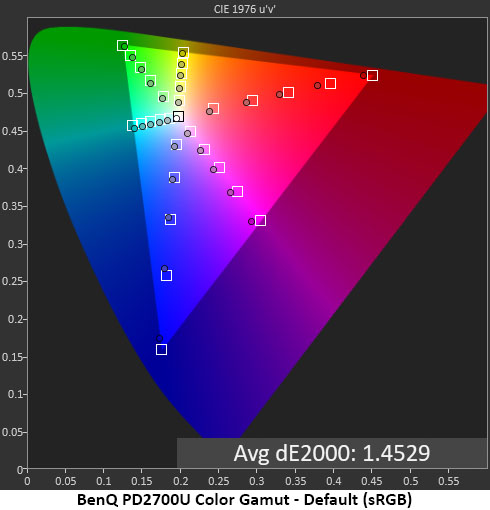
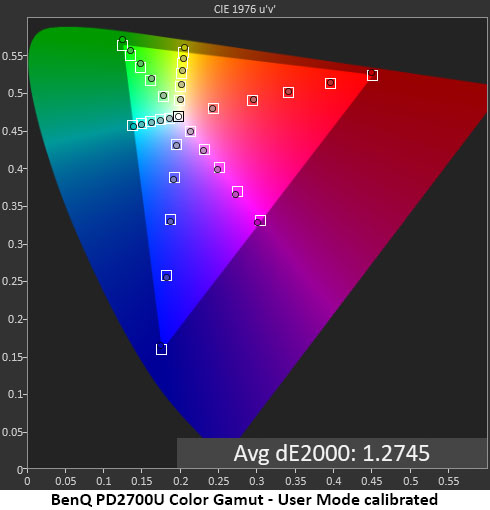
The PD2700U hits the marks for sRGB almost perfectly out of the box. There are slight hue errors in cyan and magenta, and blue and red are a tiny bit under-saturated. None of that causes visible problem, as the average error is just 1.45dE, well below the visible point.
Calibration fixed these issues and delivered an unexpected benefit. Normally, primary color points are not affected when grayscale is adjusted, but the PD2700U’s User mode increased their saturation a small amount. It isn’t huge, but it does make color a bit more vibrant. And accuracy is still superb at just 1.27dE average. That’s why it’s worth making our recommended changes.
Comparisons
No one will be dissatisfied with the PD2700U’s color accuracy in the default sRGB mode. But calibration not only slightly improved grayscale and gamma, it increased color saturation. This is somewhat unusual but certainly not unwelcome. With the proper tweaks, its performance is at the reference level.
It is unfortunate that there is no DCI-P3 gamut option, but sRGB volume is good at just over 108 percent. There is a little bonus green and red, which is welcome for HDR signals. Though not marketed as such, the PD2700U certainly qualifies as a professional display.
MORE: Best Gaming Monitors
MORE: How We Test Monitors
MORE: All Monitor Content
Current page: Grayscale, Gamma and Color
Prev Page Brightness and Contrast Next Page HDR Performance
Christian Eberle is a Contributing Editor for Tom's Hardware US. He's a veteran reviewer of A/V equipment, specializing in monitors. Christian began his obsession with tech when he built his first PC in 1991, a 286 running DOS 3.0 at a blazing 12MHz. In 2006, he undertook training from the Imaging Science Foundation in video calibration and testing and thus started a passion for precise imaging that persists to this day. He is also a professional musician with a degree from the New England Conservatory as a classical bassoonist which he used to good effect as a performer with the West Point Army Band from 1987 to 2013. He enjoys watching movies and listening to high-end audio in his custom-built home theater and can be seen riding trails near his home on a race-ready ICE VTX recumbent trike. Christian enjoys the endless summer in Florida where he lives with his wife and Chihuahua and plays with orchestras around the state.